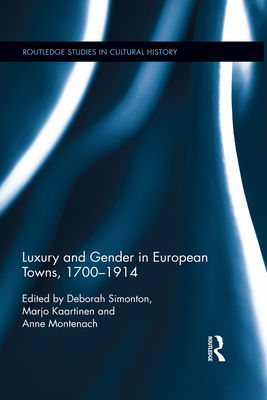
Deborah Simonton, Marjo Kaartinen, Anne Montenach (ed.), Luxury and Gender in European Towns, 1700-1914
Routledge, 276 p., 140 dollars. ISBN 978-1-13-880316-9
This book conceives the role of the modern town as a crucial place for material and cultural circulations of luxury. It concentrates on a critical period of historical change, the long eighteenth and nineteenth centuries, that was marked by the passage from a society of scarcity to one of expenditure and accumulation, from ranks and orders to greater social mobility, from traditional aristocratic luxury to a new bourgeois and even democratic form of luxury. This volume recognizes the notion that luxury operated as a mechanism of social separation, but also that all classes aspired to engage in consumption at some level, thus extending the idea of what constituted luxury and blurring the boundaries of class and status, often in unsettling ways. It moves beyond the moral aspects of luxury and the luxury debates to analyze how the production, distribution, purchase or display of luxury goods could participate in the creation of autonomous selves and thus challenge gender roles.
Fichiers de syndication :
Statistiques :
Le site contient 4383 articles
